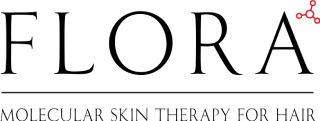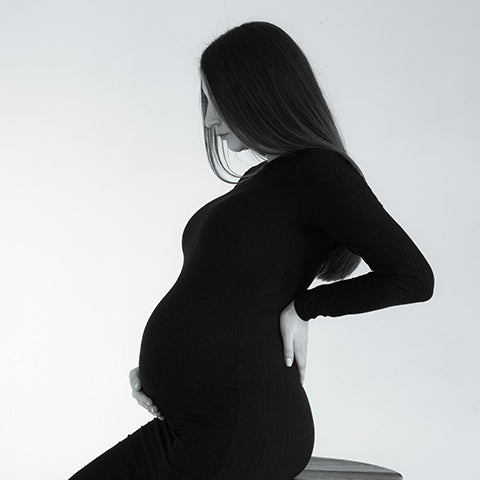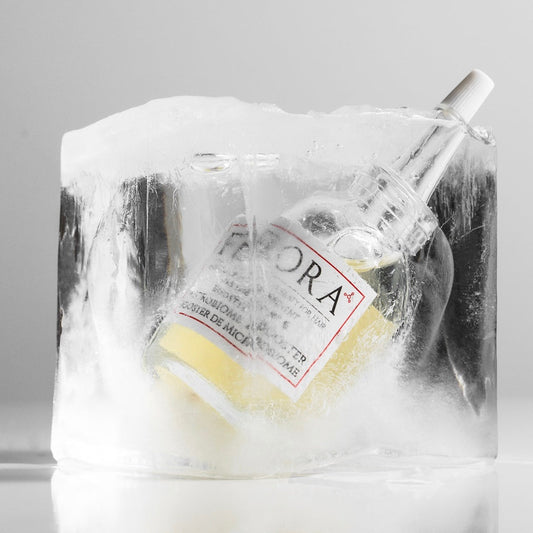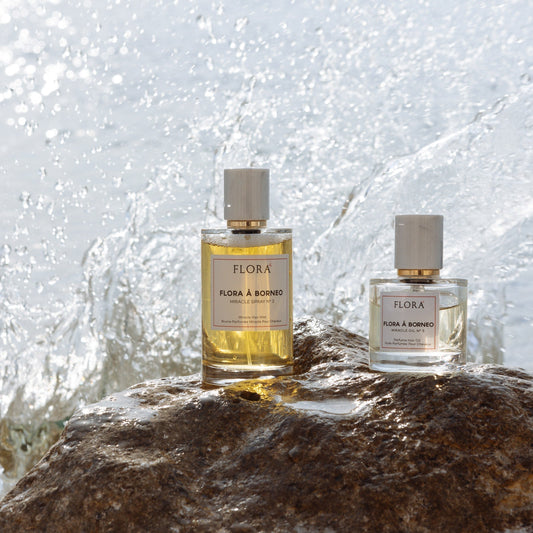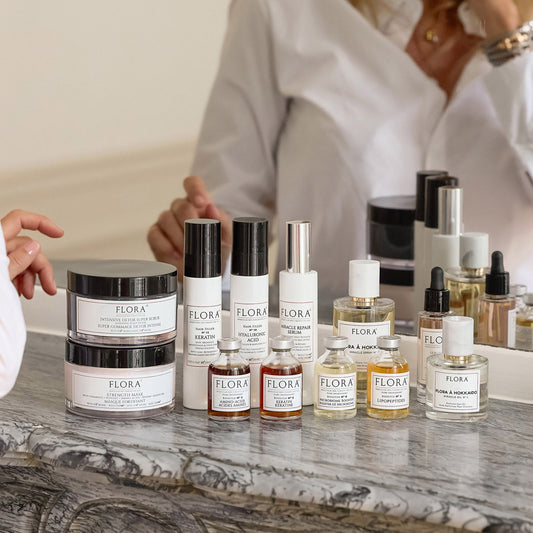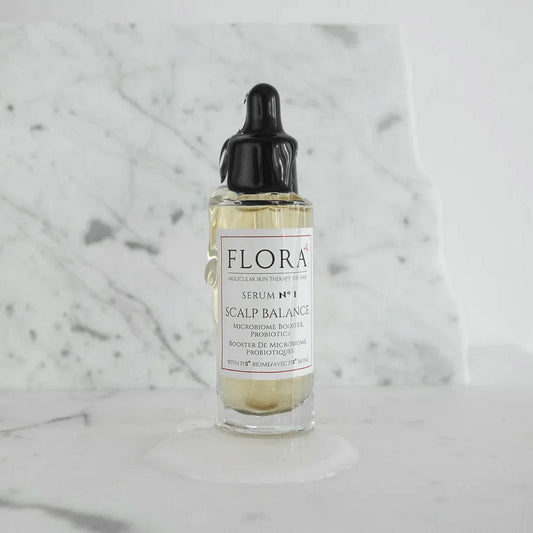Taking care of your Hair throughout pregnancy & postpartum
Pregnancy is a very unique journey in a woman’s life. It’s nine months during which the body undergoes an adaptation of its energy metabolism, allowing it to maintain a new balance, taking into account the anatomical and physiological changes needed to support fetal growth.
The woman's body is therefore significantly affected by these changes, particularly when it comes to the hair, which experiences major fluctuations throughout these nine months of gestation and beyond.
At Flora, our commitment is to offer a hair care range without compromise, finally combining effectiveness, clean beauty, and sensoriality.
A beauty brand you can fully trust, at any stage of your life, and even more so during pregnancy.
Here are our tips for navigating your beauty and hair care routine with peace of mind, taking care of your hair throughout pregnancy and beyond.
I. Hair, Hormones & Pregnancy
During pregnancy, hormonal changes can have a direct impact on the quality of your hair.
A. The role of the hormonal system in improving hair health during pregnancy
Throughout pregnancy, many women experience a significant improvement in hair quality, Hair generally appearing healthier : stronger, thicker, shinier, and offering better texture.
The thickening of hair during pregnancy is actually due to a substantial increase in estrogen levels in the body (1).
This hormone positively affects the hair growth phase, during which cells divide rapidly. By binding to a specific receptor, estrogen significantly stimulates hair growth.
However, not all women experience this change, as each individual’s sensitivity to hormones varies.
Hair loss also decreases during pregnancy. While we normally lose about 100 hair a day, during pregnancy, hormones can reduce this loss, meaning many women notice significantly less hair shedding.
Additionally, the texture of hair can change during pregnancy. Some women find their hair becomes curlier or thicker, while others report it becoming smoother.
B. Ingredients to avoid in your beauty products during pregnancy
 The skin is the largest organ of our body. It acts both as a barrier, protecting us from external aggressions and pathogens, and has an absorbent property. The scalp is no exception.
The skin is the largest organ of our body. It acts both as a barrier, protecting us from external aggressions and pathogens, and has an absorbent property. The scalp is no exception.
More than at any other time in life, pregnancy is a delicate period during which you need to be particularly vigilant about everything you consume daily, including beauty products.
Some cosmetic ingredients can be problematic for your health, either because they are too strong for your skin, which is sensitized by hormonal changes during pregnancy, or because they could be harmful to the proper development of your baby.
Here are the main ingredients you might find in some hair care products, which can be sensitizing for pregnant women and toxic for fetal development.
- Phenoxyethanol is part of the solvent family and acts as a preservative in many cosmetics. While it has not officially been classified as an endocrine disruptor, several studies have shown that it can be toxic to the liver, blood, and brain. During pregnancy, it’s best to avoid accumulating cosmetic products that contain this ingredient due to potential neurological damage and developmental disruptions it could cause in the fetus.
- Parabens are preservatives used in hygiene and beauty products to prevent the growth of bacteria, fungi, yeast, and mold. During pregnancy, they mimic the action of estrogen in the body, disrupting fetal development. Given the uncertainties and as a precaution, it's better to avoid them during pregnancy.
- Formaldehyde and ammonia, found in many hair dyes and nail polishes.
- Phthalates, used to improve product texture, fragrance fixation, and preservation, are found in conditioners and hair masks. They should be avoided by pregnant women as they may increase the risk of miscarriage or premature birth (2).
- Retinoids, derived from vitamin A, are teratogenic, meaning they increase the risk of malformations in the embryo. Retinol, a popular skincare ingredient, is also found in some hair loss treatment formulas.
- Essential oils, although commonly used in organic cosmetics, contain potent active ingredients that penetrate the bloodstream and affect the entire body, potentially impacting your baby’s development. While the risk is theoretical, it's better to avoid essential oils during the first three months of pregnancy. From the fourth month, you can use essential oils externally, but with caution—avoid applying them to the abdominal or chest area. Always choose products with low concentrations of essential oils (less than 3%) and ensure they are of organic quality. Some essential oils, particularly those containing ketones, aromatic aldehydes, or phenols, should be avoided entirely during pregnancy due to their neurotoxic or hepatotoxic risks, or because they act on the hormonal system.
- Fragrances, besides causing nausea, can be allergenic for sensitive individuals. Some may also hide endocrine disruptors or essential oils (LIMONENE and LINALOOL).
- Triclosan (toothpaste)
- Benzophenones (UV filters in conventional sunscreens)
- Salicylic acid or BHA (anti-acne treatments, including in bio cosmetics)
- Aluminum salts (deodorants)
To sum up, less is more : the fewer ingredients on the label, the better !
This is why at Flora, none of these ingredients are found in our hair care products. Our range is designed without compromise, combining sensoriality and effectiveness, always respecting your skin and health.
C. The Flora routine to support hair beauty throughout pregnancy
The idea behind this routine is to take care of your hair with a clean, effective, and sensorial routine that supports your hair’s beauty and helps prevent postpartum hair loss.s.
-
Shampoo for gentle cleansing:

-
Even though it doesn't stay on the scalp for long, it’s important to choose a sulfate-free shampoo to avoid irritating and damaging the skin barrier.
Our two shampoos are specifically formulated to maintain the pH and microbiome of the scalp. They are gentle and non-abrasive.
DISCOVER -
Even though it doesn't stay on the scalp for long, it’s important to choose a sulfate-free shampoo to avoid irritating and damaging the skin barrier.
-
Serum for Healthy Hair:
Our Density Serum, based on innovative molecular technology, stimulates hair growth and density, making hair healthier, denser, and thicker, thanks to biomimetic micro peptides and Flora's two patented complexes.
DISCOVER
-
Mask to strengthen hair and prevent postpartum hair loss:
Flora Strength Mask repairs and restores the structural elements and elasticity of hair from within, optimizing hair health and preventing postpartum hair loss
DISCOVER
II. Postpartum: How to manage hair loss?
A. A natural phenomenon
Postpartum hair loss is a natural phenomenon experienced by many women after childbirth. This shedding is due to significant hormonal changes, often accompanied by high levels of stress (3).
During pregnancy, hormone levels progressively increase, but after the placenta is removed during childbirth, estrogen and progesterone levels plummet, returning to normal within 2 to 4 days after having been multiplied by nine during gestation.
Although this significant hair loss is natural, the goal is to prevent as much of it as possible by boosting regrowth and fortifying the hair fiber, restoring density, volume, and shine.
B. Adopting a holistic approach to maximize results
At Flora, we advocate a holistic approach to beauty that starts from within, with the choices we make at the table, and is enhanced externally through a range of highly effective hair care formulations.
Here are some vitamins, minerals, and nutrients to make sure you include in your diet alongside your beauty routine. In fact, some of these are also included in the formulas of our Flora products for amplified in & out action.
-
B Vitamins: Biotin helps maintain normal hair as it regulates the expression of proteins, including keratin. Additionally, the role of folates (vitamin B9) and vitamin B12 in the production of nucleic acids for DNA suggests they could play a significant role in hair follicle proliferation.
The good news is that B vitamins are found in a wide variety of foods, particularly in whole grains, nuts, leafy green vegetables (cruciferous vegetables, spinach, etc.), brewer's yeast, and quality eggs (organic or labeled Bleu-Blanc-Cœur).
-
Iron: Significant blood loss can occur during work. Iron deficiency is one of the main causes of hair loss. Although the exact mechanism by which this nutrient affects hair growth is not fully understood, hair follicle cells are among the fastest-dividing cells in the body, and deficiency could contribute to hair loss through its role in an enzyme that affects the rate of DNA synthesis.
Some iron-rich foods include lentils, liver, shrimp, lamb, beef, spinach, and nuts.
Beauty tip: Pair your iron intake with vitamin C to enhance absorption and limit the consumption of green tea, which antagonizes the absorption of this mineral. -
Collagen: Hair is primarily made up of keratin. Your body uses several amino acids to produce this protein, some of which, particularly proline, are found in large quantities in collagen. Therefore, consuming collagen could provide your body with the building blocks it needs to generate new hair.
Some collagen-rich foods include bone broth, fish, meats, and poultry.
-
Zinc: Zinc is an essential component of many important enzymes involved in protein synthesis and cell division. It also plays a role in the pathways that govern hair follicle development. A deficiency of this mineral can lead to telogen effluvium (increased hair shedding) and brittle hair.
We recommend regularly consuming seafood, liver, legumes, nuts, pumpkin seeds, and whole grains like brown rice. -
Fatty Acids: A deficiency in essential polyunsaturated fatty acids, such as linoleic acid (omega 6) and alpha-linolenic acid (omega 3), can result in hair loss. Unsaturated fatty acids modulate androgen hormones, which promote hair loss. Additionally, omega 6, found in eggs, supports hair growth by increasing follicle proliferation.
Some omega 3-rich foods include vegetable oils (flaxseed, walnut, camelina), chia seeds, flaxseeds, hemp seeds, walnuts, and small fatty fish (sardines, mackerel, anchovies).
For omega 6: sesame oil, borage oil, evening primrose oil, wheat germ oil, pumpkin seeds, sesame seeds, sunflower seeds, eggs, and poultry. -
Vitamin D: Data from animal studies suggest that vitamin D plays a role in the hair follicle cycle. Studies have shown that there are vitamin D receptors in the cells during the growth phases of the hair cycle, indicating that vitamin D intake, in addition to its multiple benefits for bone health and the immune system, could boost hair growth
Some vitamin D-rich foods include egg yolk, fish, cod, and cod liver oil.
C. The Flora routine to prevent hair loss and care for your hair during postpartum
In addition to the products mentioned for your pregnancy hair care routine, here are a few additional products that can make a difference in boosting regrowth, fortifying the hair fiber, and restoring hair density and volume.
-
Gentle exfoliating scrub to stimulate hair growth:
Our Daily Detox Gentle Scrub is formulated to cleanse and soothe the scalp while boosting regrowth through gentle exfoliation.
DISCOVER
-
Serum to strengthen hair:
In combination with the Density Serum, our Miracle Repair Serum strengthens hair and enhances its resistance to external aggressions.
DISCOVER
-
Conditioner to hydrate and protect hair:
Our conditioner combines the best of Flora’s ingredients with amino acids, biotin, and hyaluronic acid for deeply hydrated and nourished hair, enhancing volume and shine.
DISCOVER
-
Filler for revitalized hair

Our hair fillers reach deep into the hair fiber, replenishing it with essential nutrients, leaving even weakened hair rejuvenated and revitalized..
DISCOVER
Sources
(1) Piérard-Franchimont, Claudine, et Gérald E. Piérard. 2013. « Alterations in Hair Follicle Dynamics in Women ». BioMed Research International2013: 957432. https://doi.org/10.1155/2013/957432.
(2) Conclusion d’une étude publiée en juillet 2022 dans le Journal of American Medical Association.
(3) Mirallas, Oriol, et Ramon Grimalt. 2016. « The Postpartum Telogen Effluvium Fallacy ». Skin Appendage Disorders1 198‑201.https://doi.org/10.1159/000445385.
(4) Rebora, Alfredo. 2016. « Proposing a Simpler Classification of Telogen Effluvium ». Skin Appendage Disorders 2 (1‑2): 35‑38.https://doi.org/10.1159/000446118.
(5) Piérard-Franchimont, Claudine, et Gérald E. Piérard. 2013. « Alterations in Hair Follicle Dynamics in Women ». BioMed Research International2013: 957432. https://doi.org/10.1155/2013/957432.
(6) Pacheco-Alvarez, Diana, R. Sergio Solórzano-Vargas, et Alfonso León Del Río. 2002. « Biotin in Metabolism and Its Relationship to Human Disease ». Archives of Medical Research 33 (5): 439‑47. https://doi.org/10.1016/s0188-4409(02)00399-5
(7) Almohanna, Hind M., Azhar A. Ahmed, John P. Tsatalis, et Antonella Tosti. 2018. « The Role of Vitamins and Minerals in Hair Loss: A Review ». Dermatology and Therapy 9 (1): 51‑70. https://doi.org/10.1007/s13555-018-0278-6.
(8) Kantor, Jonathan, Lisa Jay Kessler, David G. Brooks, et George Cotsarelis. 2003. « Decreased Serum Ferritin Is Associated with Alopecia in Women ». The Journal of Investigative Dermatology 121 (5): 985‑88. https://doi.org/10.1046/j.1523-1747.2003.12540.x.
(9) Ward, Wilfred H., et Harold P. Lundgren. 1954. « The Formation, Composition, and Properties of the Keratins ». In Advances in Protein Chemistry, édité par M. L. Anson, Kenneth Bailey, et John T. Edsall, 9:243‑97. Academic Press. https://doi.org/10.1016/S0065-3233(08)60208-9.
(10) MacDonald, Ruth S. 2000. « The Role of Zinc in Growth and Cell Proliferation ». The Journal of Nutrition 130 (5): 1500S-1508S.https://doi.org/10.1093/jn/130.5.1500S.
(11) Ruiz i Altaba, A. 1999. « Gli Proteins and Hedgehog Signaling: Development and Cancer ». Trends in Genetics: TIG 15 (10): 418‑25.https://doi.org/10.1016/s0168-9525(99)01840-5
(12) Liang, T., et S. Liao. 1992. « Inhibition of Steroid 5 Alpha-Reductase by Specific Aliphatic Unsaturated Fatty Acids ». The Biochemical Journal285 ( Pt 2) (juillet): 557‑62. https://doi.org/10.1042/bj2850557.
(13) Munkhbayar, Semchin, Sunhyae Jang, A.-Ri Cho, Soon-Jin Choi, Chang Yup Shin, Hee Chul Eun, Kyu Han Kim, et Ohsang Kwon. 2016. « Role of Arachidonic Acid in Promoting Hair Growth ». Annals of Dermatology 28 (1): 55‑64. https://doi.org/10.5021/ad.2016.28.1.55.
(14) Amor, Karrie T., Rashid M. Rashid, et Paradi Mirmirani. 2010. « Does D Matter? The Role of Vitamin D in Hair Disorders and Hair Follicle Cycling ». Dermatology Online Journal 16 (2): 3.
(15) Reichrath, J., M. Schilli, A. Kerber, F. A. Bahmer, B. M. Czarnetzki, et R. Paus. 1994. « Hair Follicle Expression of 1,25-Dihydroxyvitamin D3 Receptors during the Murine Hair Cycle ». The British Journal of Dermatology 131 (4): 477‑82. https://doi.org/10.1111/j.1365-2133.1994.tb08547.x.
